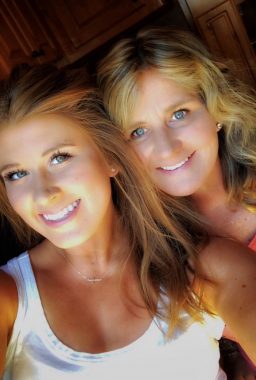Finding hope, expertise, and compassion — and an ALS clinic
A daughter continues her mother's work in helping patients get the right care
Written by |

While my late husband, Jeff, was living with ALS, there was a place where we both felt supported and hopeful, his disease understood.
Driving through the streets of Baltimore as we wound our way toward the Johns Hopkins ALS Clinic, I could’ve felt trepidation, as sometimes on clinic day we’d get difficult evidence of his disease progression. Instead, what I usually felt was a sense of calm and being well cared for.
An ALS clinic day is a multidisciplinary appointment that convenes an individual’s care team into one location. On clinic day, Jeff and I would remain in one exam room while his neurologist, speech pathologist, and respiratory, occupational, and physical therapists would visit us on rotation. Through this approach, Jeff’s care was integrated and specific to his needs.
Through the clinic, he enrolled in a trial for what I later learned was Relyvrio (sodium phenylbutyrate and taurursodiol). We learned methods to sustain his faltering speech. We explored mobility options before his gait became unsteady. And just as importantly, his emotional well-being was paramount.
I loved clinic days, and I think Jeff did, too. At clinic, Jeff was a person more than a patient. Our team showed boundless respect for him as an individual, focusing on his dignity, wants, and feelings. They displayed compassion and support for me, his caregiver, too.
Through my experiences over the past four years as a volunteer advocate with I AM ALS, I learned that Jeff and I were fortunate. Many other families have equally satisfying experiences with their ALS clinic, but some don’t. Clinic attendance can be a function of geography, veteran status, or preference. Some families have multiple options, and many have none, as deserts of care exist. Clinic locations in such places are sparse or nonexistent, precluding attendance for many people.
To help families find the clinic that best meets their needs, my friend Kylan Morris is seeing through a promise she made to her mom, Sandy Morris, who was a powerhouse advocate best known as a driving force behind the passage of ACT for ALS and the Morris Principles, among many other advances in quality of life for people living with ALS.

Kylan. left, and her mom, Sandy Morris. (Courtesy of Kylan Morris)
Using Eyegaze technology alone, both Sandy and Pat Dolan, a world-class geographer living with ALS, began creating the ALS Clinic Experience Survey to help others locate a nearby clinic, identify gaps in care, and share their experiences with other people living with the disease. This starting point for newly diagnosed ALS families also helps them approach their first clinic visit with confidence, prepared with questions to ask and informed by the real-life experiences of other ALS families.
Sandy exercised her Medical Aid in Dying wish last August, surrounded by her family on their deck overlooking the Sierra Nevada. Before doing so, she asked her only daughter to pick up the baton. It was just two weeks after Sandy had started the project.
“Mom prepared me to carry on leading a team of amazing advocates known as the R1 crew (for Rogue One) to create and ensure that the ALS Clinic Survey became a useful tool for the ALS community,” Kylan tells me by email. Keeping her promise, Kylan, together with Pat and the R1 crew, have since seen it through. (Full disclosure: I’m also a member of the R1 crew.)
Launched at the end of last year, the survey already has nearly 200 completed responses. The R1 crew’s goal is 500 or more to achieve a comprehensive results dashboard for people living with ALS, so that they can make the most informed decision about which clinic they choose to trust with their care journey.
“Mom spent so many late nights researching every life-preserving detail that the internet and other resources had to offer so that she could stay with my family as long as she could,” Kylan says. “The survey allows people living with ALS to start with this invaluable information, as people living with ALS are the experts in their own disease.”
Kylan continued, saying, “The ultimate goal is to create transparency to the level of care that is being provided at an ALS clinic, for both individuals and clinic staff. Clinic staff will have access to the insights and real experiences of people living with the disease that are attending their clinic, and have an opportunity to reply to experiences specific to their clinic that will be displayed in the results dashboard.”
If you’re newly diagnosed, the ALS Clinic Experience Survey dashboard will help you to navigate an often challenging time by helping you to choose the clinic that best meets your individual needs. If you’re already enrolled in a clinic, please consider completing the ALS clinic survey and sharing your experience with others.
Your story matters and will further us in the fight against ALS.
Note: ALS News Today is strictly a news and information website about the disease. It does not provide medical advice, diagnosis, or treatment. This content is not intended to be a substitute for professional medical advice, diagnosis, or treatment. Always seek the advice of your physician or other qualified health provider with any questions you may have regarding a medical condition. Never disregard professional medical advice or delay in seeking it because of something you have read on this website. The opinions expressed in this column are not those of ALS News Today or its parent company, Bionews, and are intended to spark discussion about issues pertaining to ALS.







Linda
The most difficult hoop to jump thru is getting my neurologist to do a referral to the als clinic!!!!
Chris King
My neurologist had no problem referring me but I did the research and called about appts. If you know the clinic in your area call and make appt. they didn't ask me anything other than diagnosis date. The clinic whose area I'm in by zip code had 5 month wait and was in another state so they gave appt cancellations and earlier appts to instate pts. I got into clinic in my state in 5 weeks and went there for over 2 years but 4 hour drive and afternoon only appts plus had to stay over for any testing. Currently with Synapticure since Oct 22 and if clinic needed they will facilitate not me. Hope this information helpful, Chris